
7 minute read
CAUTIOUS OPTIMISM
How are the BVI’s key industries coping with the challenges of COVID-19?
BY JESSICA SANTOS
Advertisement
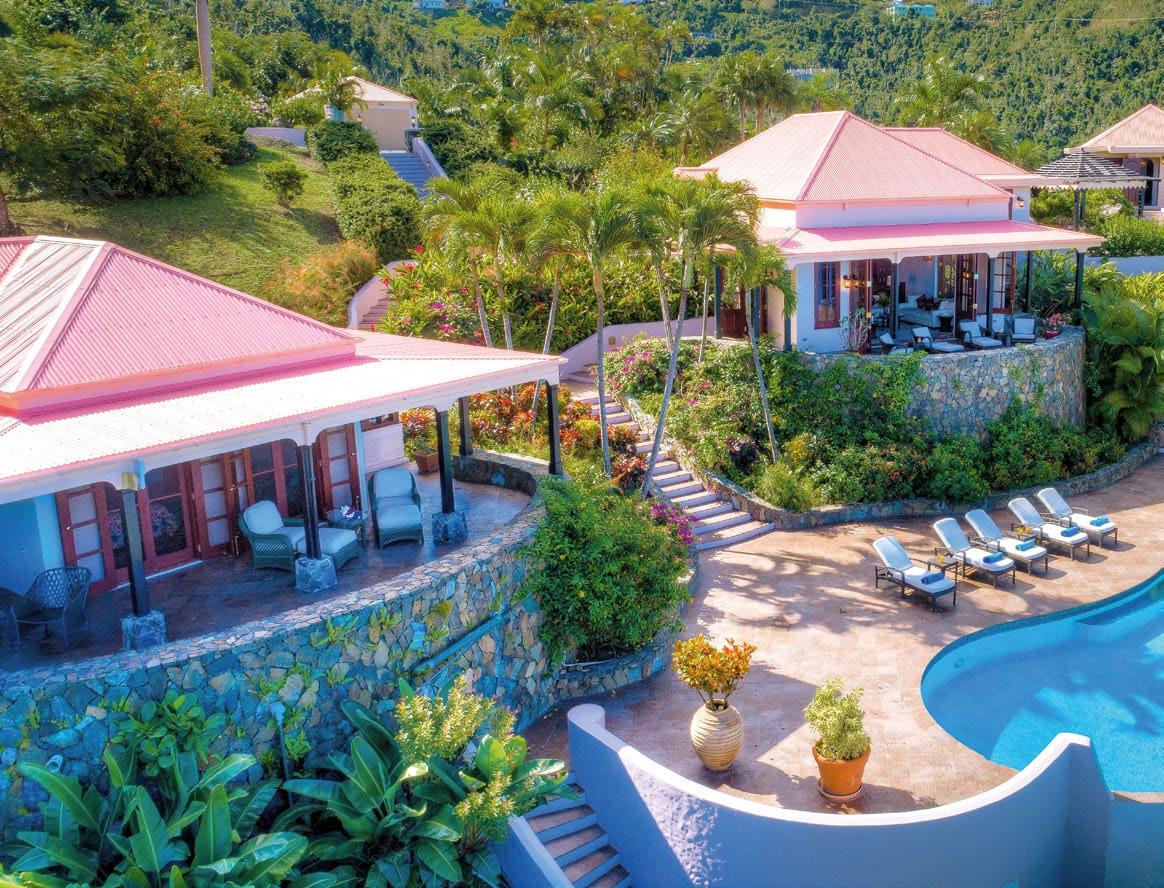
Many rental villas sit empty as visitors are currently not allowed into BVI. (Credit: Canfield House, courtesy of BVI Villa Rental)
OUR ISLANDS ARE accustomed to change and having to embrace unprecedented situations with little or no warning. It should come as no surprise that our two main industries financial services and tourism, have adapted promptly to the challenges presented by the global pandemic caused by COVID-19 but with starkly contrasting impacts on their respective businesses.
In the aftermath of Hurricane Irma, the financial services companies had to move quickly to change their way of operating and keep their teams working effectively without the benefit of a central office. This prior experience has resulted in the industry conducting a smooth transition into the world of working remotely during lockdown and limiting staff numbers in the office thereafter.
Jose Santos, Managing Partner of Forbes Hare BVI states: “Our Business Continuity Plan (BCP) offers all staff members the ability to work from home on a secure basis. Our BCP plan was implemented across the Group on a staged process as each country made plans to tackle the pandemic. Our actions ensured limited disruption to our client service. A large proportion of our global team already had laptops so our infrastructure was largely in place when lockdown occurred.”
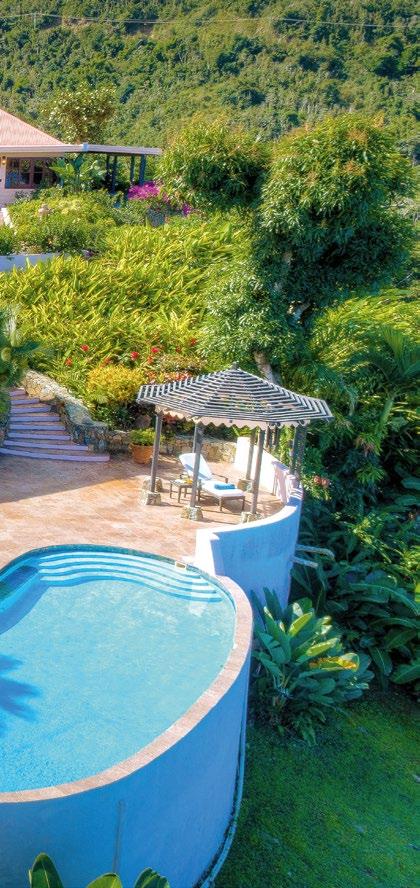
Villa bookings were nearly back to pre-Irma levels when the COVID-19 pandemic hit. (Credit: Turtle Bay House, courtesy BVI Villa Rental)
The health and wellbeing of staff members has been of paramount importance during the lockdown and subsequent curfew.
“We check in with each other at least every couple of days but usually intra day to make sure we are all doing well. If anyone needs any help, we try to make it happen the best way possible given the circumstances. Everyone continues to be paid,”
elaborates Walter Reich of Tovel on how he cares for his team. “We have noted that business partners with younger kids have had to allocate some of their usual working hours to helping their kids with online schooling. So we have had to ensure we keep that in mind when scheduling conference calls with clients or with each other.”
According to Charlotte Bailey, Managing Director of TMF in the BVI: “Some staff took printers home to continue working and to be able print documents on behalf of others. Our Office Messenger has an Essential Workers Pass and so is able to travel around the island to get necessary documents signed, make collections from staff at their homes and deliver packages to the courier company offices.”
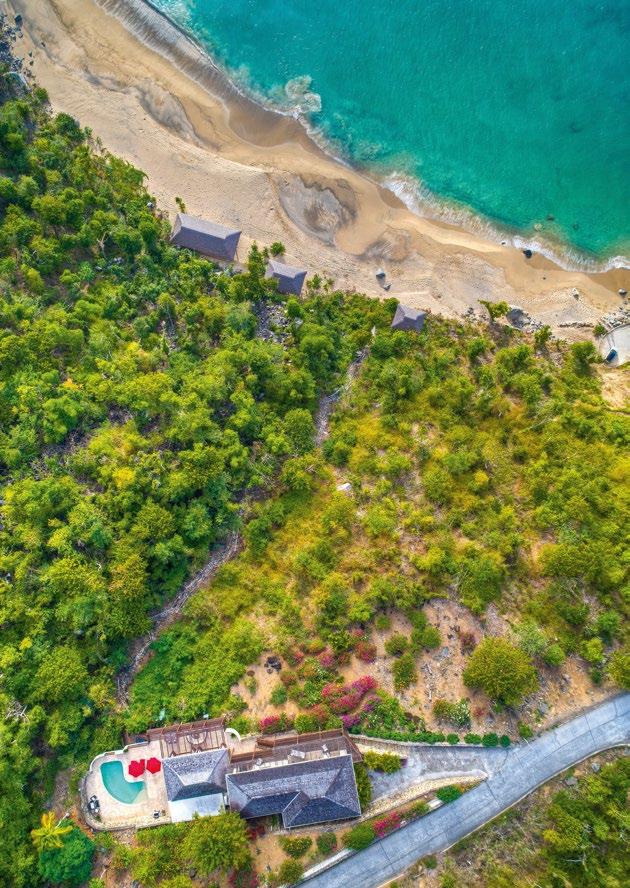
Villa bookings were nearly back to pre-Irma levels when the COVID-19 pandemic hit. (Credit: Turtle Bay House, courtesy BVI Villa Rental)
At the time of writing this article none of the financial services businesses we approached for comment had made any reduction in staff or redundancies. Neither have they seen a downturn in the volume of work being received in the BVI or globally.
“We have seen a slowdown or a stalling of some types of work, particularly some property based transactions. However, we are still receiving some very promising new instructions and the stalled transactions are still happening, they are just moving more slowly,” said Jose Santos.
Community outreach has also featured strongly within the industry. Not only supporting their own staff and family members, many firms have been supporting the community by donating old laptops to students for home schooling and supporting local non-profit organisations.
Rachael McDonald, Managing Partner of Mourant BVI explains what her team has been doing within the community:
“We have had a relationship with the Family Support Network for a number of years now, and during the pandemic have been providing additional financial support, ensuring that BVI people in need receive regular, protein-rich food during the lockdown. We have also provided funds to Regis and Claudine at Brandywine Restaurant to help them to continue in their incredible preparation and distribution of hot meals to needy BVI families. Our staff members have individually assisted many families with donations and food parcels.”
When asked how the crisis is shaping plans in the BVI for the next 12 months, Charlotte Bailey of TMF explained that no changes are expected, and that normal hours and staff back at the office is the continued plan.
These comments have been echoed by others that maintaining existing business and developing new business will be challenging during the coming months.
By contrast, the tourism industry has been hit hard. With many businesses still recovering from the effects of Hurricane Irma and many not even reopened, the timing could not have been worse. The Easter season was almost fully booked in many sectors and the outlook for forward bookings was the best since before Irma. The re-opening of Little Dix Bay in January sent out a strong message that the BVI’s tourism product was back and better than ever.
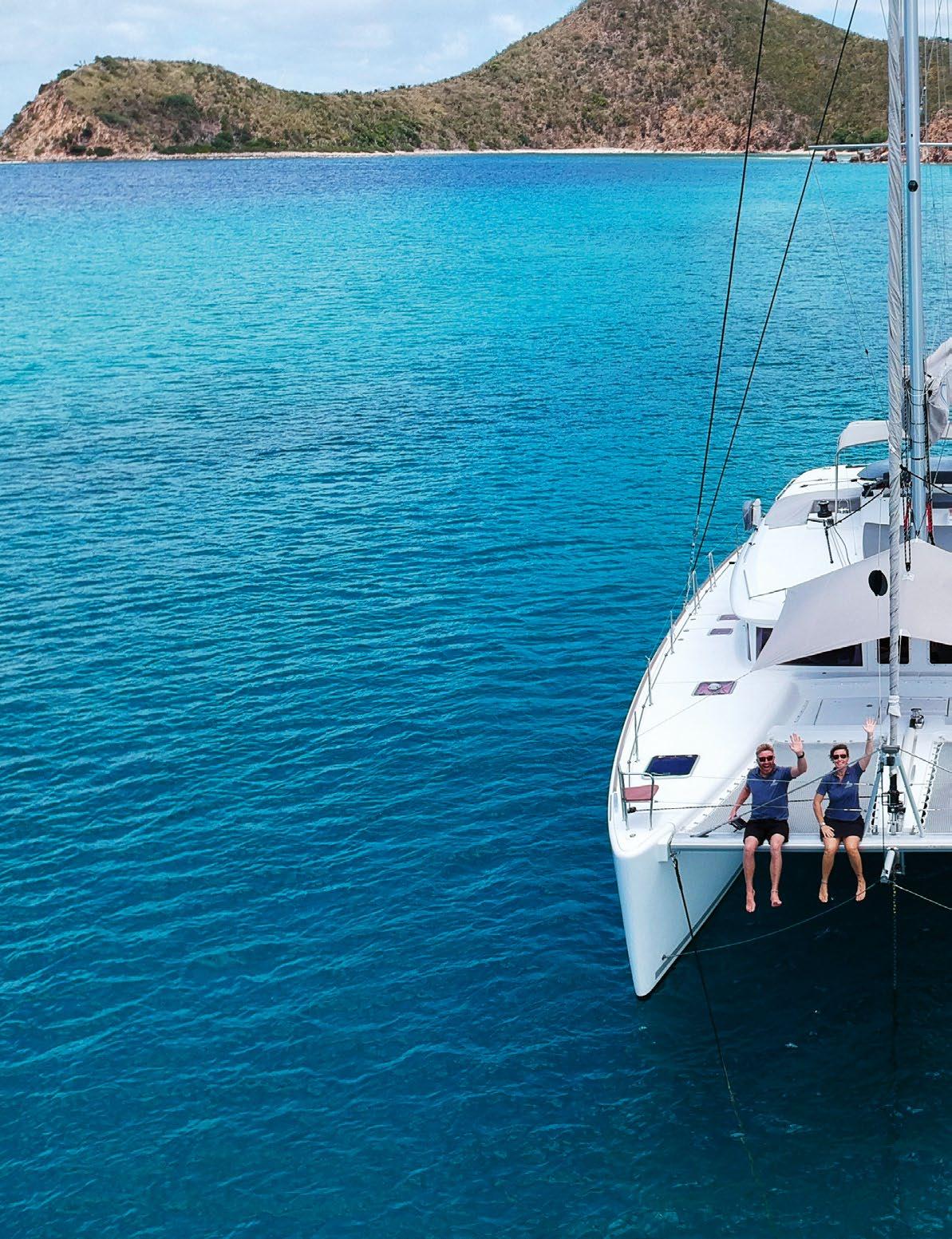
Yacht charter crews have used the downtime to carry out maintenance work and keep their properties and boats in pristine condition, ready to go as soon as travel restrictions are lifted (Credit: Gypsey Princess, courtesy of Charter Yacht Society of BVI)
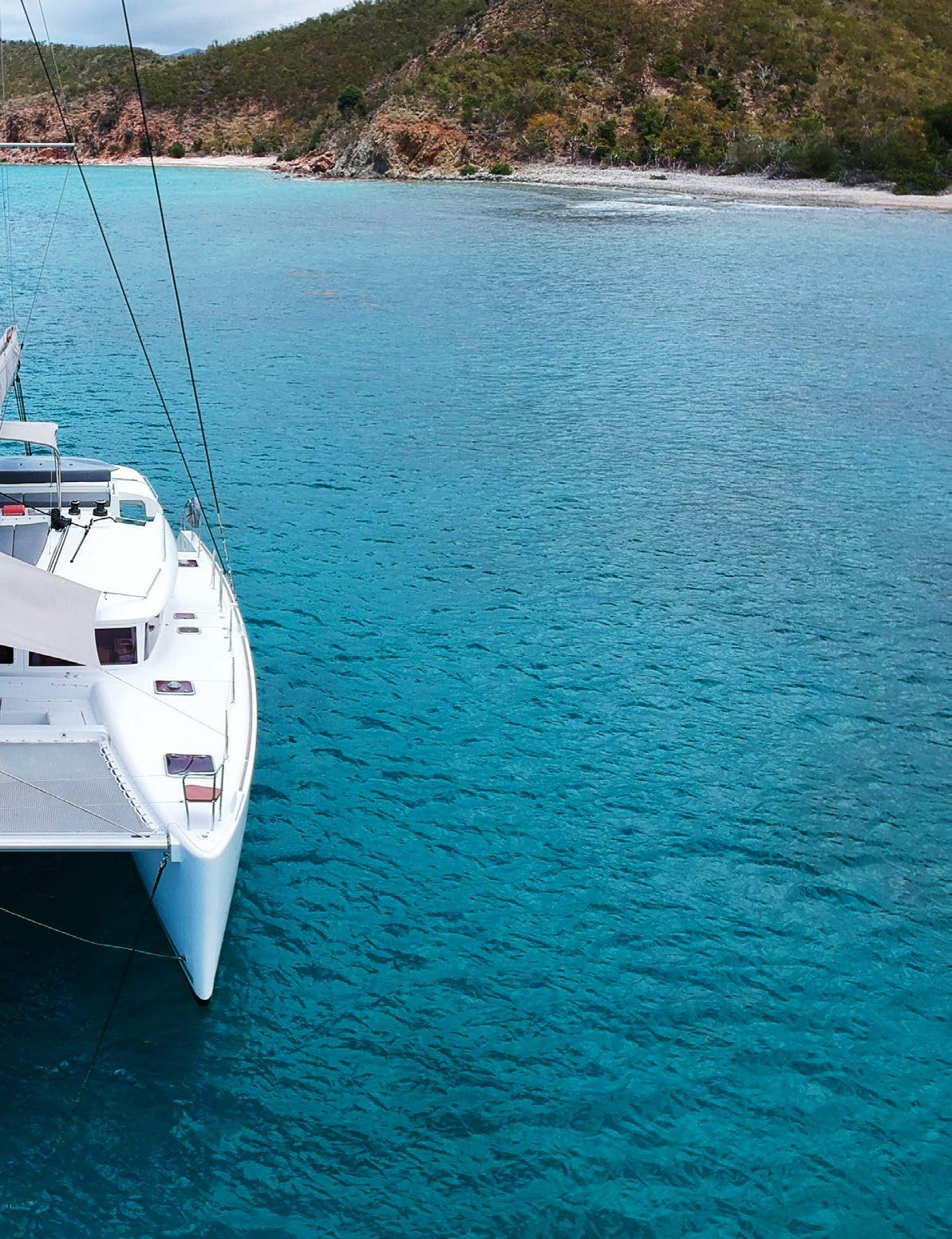
At the time the lockdown was announced, guests were able to leave the territory in an efficient and timely manner. No visitors will be allowed back into the territory until September 1st. Whilst the government-imposed lockdown has been restrictive, it has been entirely necessary to protect the territory.
Villa maintenance teams and yacht charter crews have used the downtime to carry out maintenance work and keep their properties and boats in pristine condition, ready to go as soon as travel restrictions are lifted. Yacht charter crews have even used their curfew confinement to benefit those less fortunate.
Many crews have fostered puppies from PAW and the Humane Society and two charter chefs ran an unbelievable 26.2 miles on board their respective 60 foot power cats and raised over $10,000 for the FSN and Family Resource Center in the USVI.
Chris Smith, Managing Broker at BVI Villa Rental reports that villa reservations were back to 75% of pre-Irma revenue when COVID-19 struck.
“Our approach with existing bookings has been to allow guests to rebook within the next year. We therefore haven’t been charging a cancellation fee because we haven’t been cancelling bookings. The majority of our clients are very keen still to visit when they are able".
"The problem for us is not necessarily what happens in the BVI although the decline in tourism is and will continue to have a very negative impact on our economy. It's what happens in the US and Puerto Rico and USVI in terms of COVID. That accounts for the majority of our vacation villa rentals and buying audience. So we are following those markets very closely".
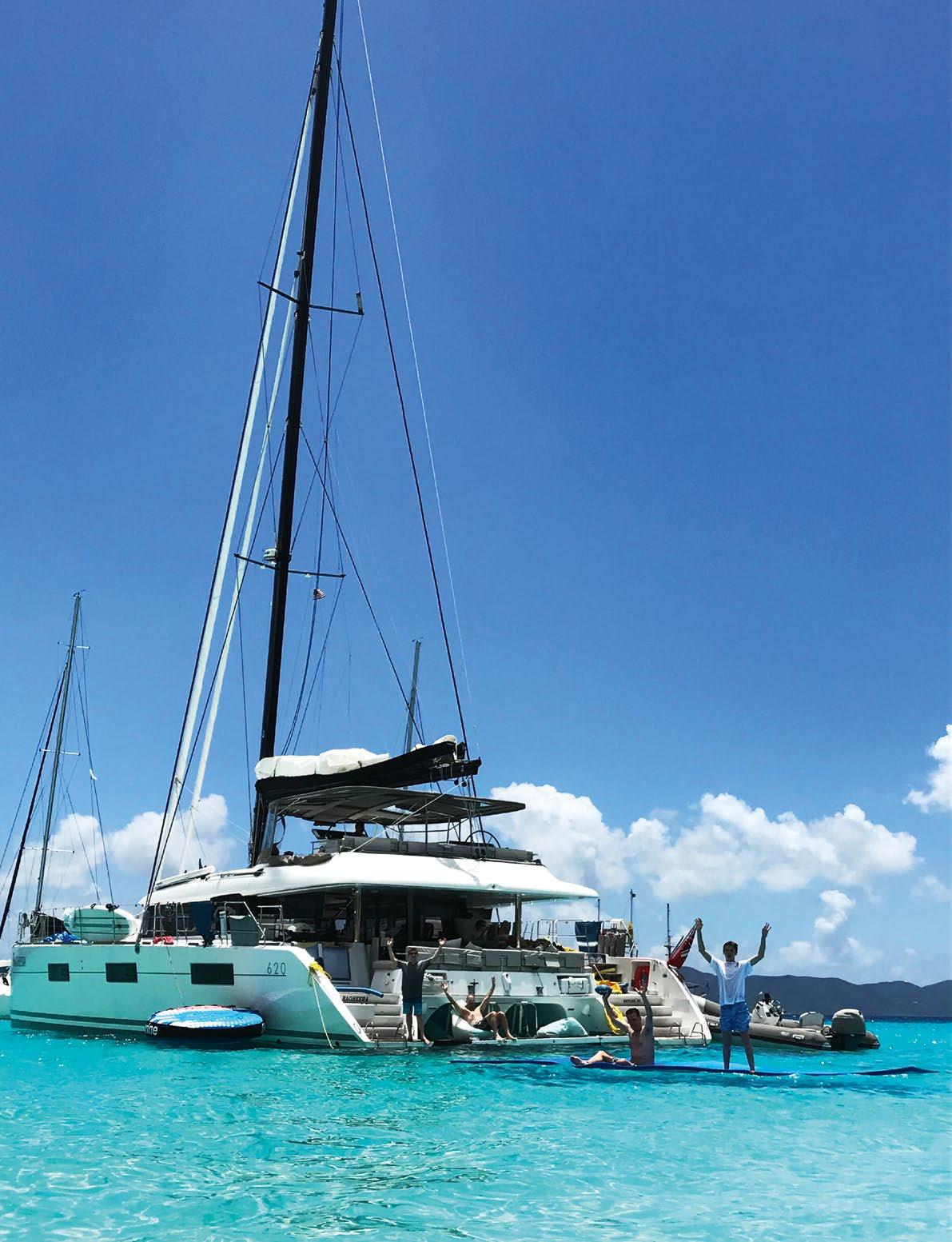
The yachting industry is looking forward to creating memorable experiences for guests once again. (Credit: Bagheera, courtesy of Charter Yacht Society of BVI)
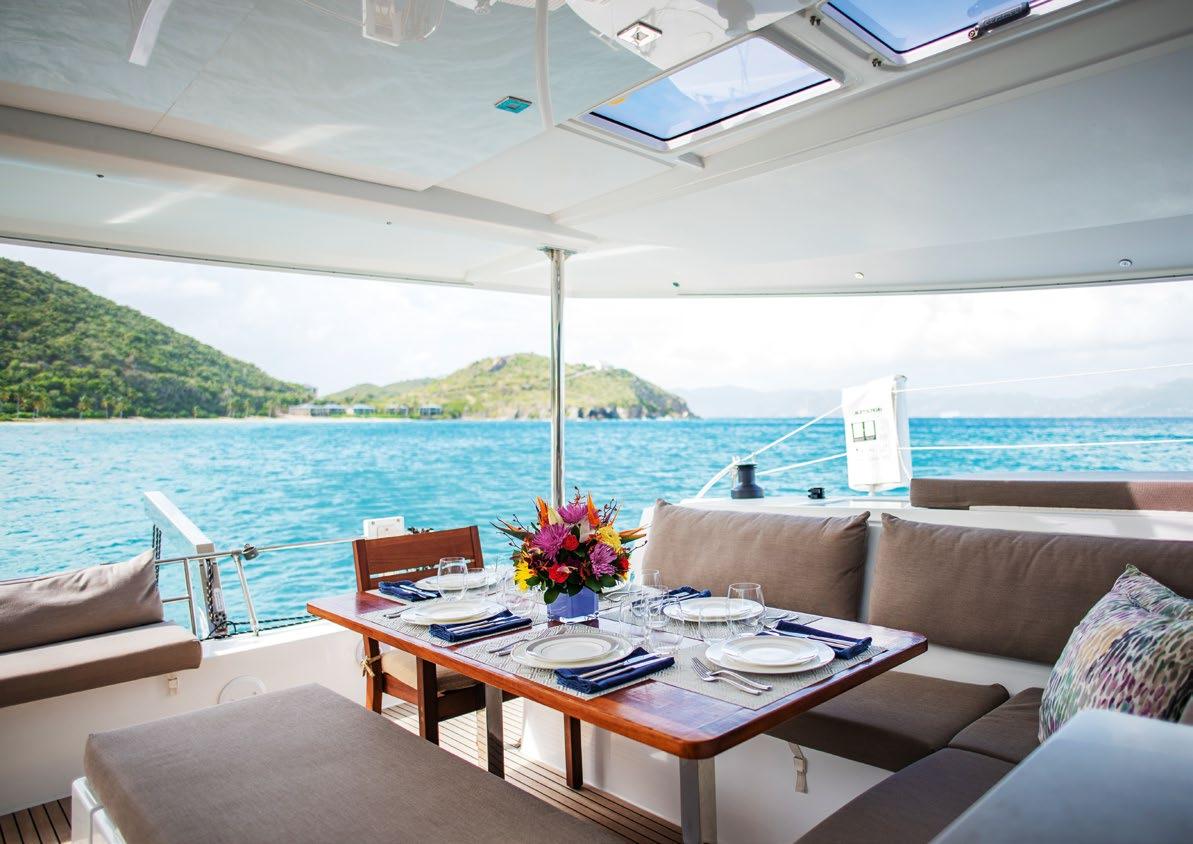
The yachting and tourism industries look to rebound from the pandemic.
Janet Oliver, the Executive Director of the Charter Yacht Society of the BVI has a positive viewpoint: “The yachting sector spearheaded the return of BVI tourism post hurricane Irma. I see no reason why, with the correct measures in place to welcome back guests, it cannot do so again. A yachting vacation requires minimal contact with others if one is intentional about it. With four month’s worth of bookings rescheduled to next season, our matchless geography unchanged and travellers keen to experience “normal” again, we should have a reasonably busy season.”
The outlook is optimistic albeit cautiously so. When restrictions are lifted and travellers are able to move freely again, the BVI will be in an ideal position. Guest accommodation, whether it be on land or on sea, is available and ready. The real challenge will be airlift and the ability to transit through the mainland US and other islands to reach the BVI. When the world emerges from social distancing, mass-market resorts and destinations will have less appeal and the private villas and charter boats will be ideally placed to offer the perfect vacation whilst maintaining social distancing. In a world adapting to life after the pandemic, the tranquil beaches and unpolluted waters of the BVI will be in more demand than ever. ■



